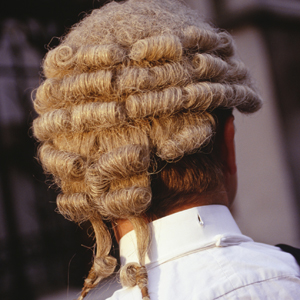The NSW Bar Association has decided against seeking the Attorney-General’s support for the re-instatement of Queen’s Counsel in NSW.

Earlier this month (9 May) Association president Philip Boulten SC informed members that having considered the findings of a recent report by the SC/QC Working Group, the Bar Council would not take steps to bring back the QC post-nominal.
“This was the wrong decision,” Hyde Page told Lawyers Weekly. “But there will continue to be overwhelming support for this change in NSW, and in the long run I think it will happen.”
Boulten stated that the Bar Council believed there was no public interest in approaching the Attorney-General, and that any system involving the Executive Government in the silk appointment process could compromise the independence of the NSW Bar.
“It would be impossible to guarantee that such a system could be established without the prospect of intervention by the Government,” he wrote in an email to members of the NSW Bar Association.
Respected QC speaks out against a return to the past
Former Federal Court Judge Kevin Lindgren QC (pictured on the right with Jones Day partner John Emmerig at a conference in March) agreed that government involvement in the silk process was “the real threat” that SC guards against.
Speaking with Lawyers Weekly, Lindgren said he respects the opinions of barristers in favour of reinstating QC, but his personal view is that such a move would be “unfortunate”.
Lindgren, 74, claimed that since all appointments since 1993 have been as SC, the nomenclature is well established and recognised in NSW, and as the remaining QCs die or retire, the argument that QC is the more prestigious title will become a moot point.
“If the NSW Bar holds out long enough .... SCs will have the day anyway; they’ll all be SCs.”
Lindgren conceded that the existence of two titles could be problematic for SCs in some areas of international practice because overseas practitioners and their clients may wrongly think that QC signifies a higher rank. He added, however, that “this is hardly the position in the domestic market where the true position is well understood”.
When asked whether the reinstatement of QC in Queensland and Victoria should influence the debate in NSW, Lindgren commented that the NSW Bar was strong enough to stand on its own.
Victorian Attorney-General Robert Clark announced in February that silk appointees in the state will have the option to have the title of QC or SC. The SC/QC Working Group report has revealed that 156 of 177 SCs in Victoria have since applied to be appointed as QC.
The state followed Queensland’s lead in restoring QC, with Attorney-General Jarrod Bleijie dumping SC altogether in 2013.
Seventy of that state’s 73 senior counsel changed their title to QC in the wake of that announcement.
Unlike Victoria or Queensland, re-introducing the QC title in NSW requires a legislative amendment.
The Legal Profession Act 2004 (NSW) currently prohibits official schemes for recognition of seniority or status, including “the prerogative right or power of the Crown to appoint persons as QC”.